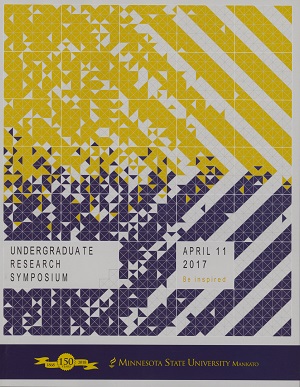Emission Testing Wood-Based Heating Systems
Location
CSU 203
Start Date
11-4-2017 2:10 PM
End Date
11-4-2017 3:20 PM
Student's Major
Automotive and Manufacturing Engineering Technology
Student's College
Science, Engineering and Technology
Mentor's Name
Bruce Jones
Mentor's Department
Automotive and Manufacturing Engineering Technology
Mentor's College
Science, Engineering and Technology
Description
In Minnesota, wood based hydronic systems are being installed in commercial and institutional facilities like farms, green houses, schools, and community centers to displace liquid propane heating systems.
This transition decreases the dependence of fossil fuels and is favorable because the timber being used is harvested from a farm rather than instigating through deforestation. Also, this crop timber is vastly available, inexpensive, renewable, and creates an opportunity for jobs. Conversely, a major concern is whether or not these benefits are linked with a decrease in air quality. Therefore, The Minnesota Center for Automotive Research has agreed to measure the emissions of two Biomass Area Source Hydronic Systems for the Minnesota Department of Agriculture (MDA) following a Federally Mandated EPA Test Procedure. Entry-level technical information about Emission Stack Testing will be presented following the USEPA Test Method methodology. Two types of emissions will be collected using an air filtering system and two gas analyzers. A total of three tests will be conducted for each hydronic system to generate two scientific emission reports, an analysis of the total concentrations of particulate and gaseous emissions, and concluding remarks of the emission tests. The Minnesota Department of Agriculture will use the emission results to determine whether or not these boilers could have negative consequences for projects related to Bio-Thermal Technology. While the Minnesota Pollution Control Agency will possibly use the measured emissions data, along with their computer simulated data, to determine the need of future regulatory emissions rates.
Emission Testing Wood-Based Heating Systems
CSU 203
In Minnesota, wood based hydronic systems are being installed in commercial and institutional facilities like farms, green houses, schools, and community centers to displace liquid propane heating systems.
This transition decreases the dependence of fossil fuels and is favorable because the timber being used is harvested from a farm rather than instigating through deforestation. Also, this crop timber is vastly available, inexpensive, renewable, and creates an opportunity for jobs. Conversely, a major concern is whether or not these benefits are linked with a decrease in air quality. Therefore, The Minnesota Center for Automotive Research has agreed to measure the emissions of two Biomass Area Source Hydronic Systems for the Minnesota Department of Agriculture (MDA) following a Federally Mandated EPA Test Procedure. Entry-level technical information about Emission Stack Testing will be presented following the USEPA Test Method methodology. Two types of emissions will be collected using an air filtering system and two gas analyzers. A total of three tests will be conducted for each hydronic system to generate two scientific emission reports, an analysis of the total concentrations of particulate and gaseous emissions, and concluding remarks of the emission tests. The Minnesota Department of Agriculture will use the emission results to determine whether or not these boilers could have negative consequences for projects related to Bio-Thermal Technology. While the Minnesota Pollution Control Agency will possibly use the measured emissions data, along with their computer simulated data, to determine the need of future regulatory emissions rates.
Recommended Citation
Yang, Justin. "Emission Testing Wood-Based Heating Systems." Undergraduate Research Symposium, Mankato, MN, April 11, 2017.
https://cornerstone.lib.mnsu.edu/urs/2017/oral-session-11/1




